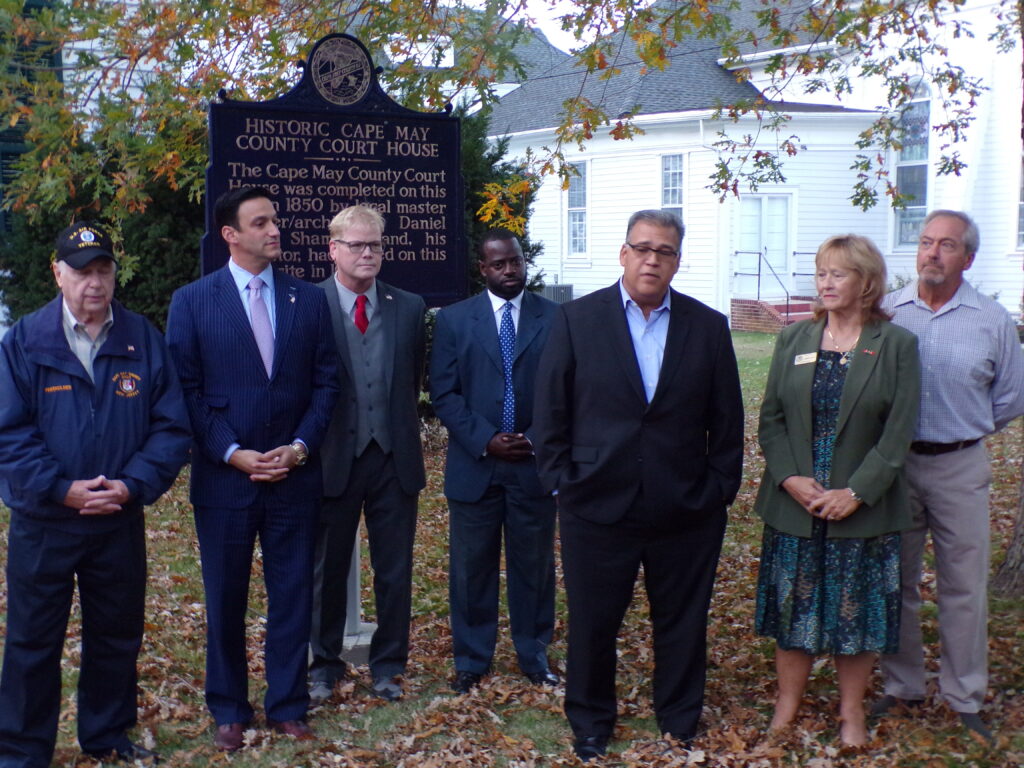The Twelve 2021 Labors of Doug Steinhardt

In Greek mythology, Hercules is ordered to do penance for his murderous acts by spending 10 years taking on humanly impossible tasks in what came to be known as “The Twelve Labors of Hercules.”
New Jersey politics, of course, is not mythology even though some of its more outrageous history has taken on mythic proportions. But, for Republican State Chairman Doug Steinhardt, the task he confronts seems every bit as humanly impossible as those faced by Hercules.
Consider:
*New Jersey is currently governed by a Democrat whose handling of the COVID-19 pandemic has sent his job approval ratings to 70 percent.
*Democrats control both houses of the Legislature by handsome margins, holding 78 of the 120 seats --- 65 percent.
*Democrats occupy 10 of the state’s 12 seats in the House of Representatives.
*Both U. S. Senate seats are held by Democrats and 48 years have elapsed since a Republican was last elected to the Senate.
*Of the last 10 governors, six have been Democrats.
*Registered Democrats outnumber Republicans by more than one million.
*In 15 of the state’s 21 counties, Democrat voter registration exceeds Republicans. Three of the six in which Republicans hold an edge are considerably less populated.
Hercules had 10 years to complete his labors. Given the magnitude of the lopsided partisan political landscape he faces, Steinhardt may require more time.
Raising money, for instance, in a time when the entirety of state government is controlled by the opposition party is a monumental challenge.
Nurturing grassroots involvement and activism, generating and maintaining momentum and enthusiasm are crucial to establishing a credible party. A strong communications strategy utilizing traditional and social media must be developed and implemented.
In fairness, it should be pointed out that Steinhardt inherited a political organization which had fallen into a moribund state. It was little more than a desk, a telephone and a stack of letterhead, badly underfunded and incapable of carrying out traditional functions such as voter registration drives, candidate recruitment, party building, and communications.
For the eight years Gov. Chris Christie occupied the governor’s office, the state committee’s funds (such as they were) and resources were committed to him.
The committee picked up expenses involved in his quixotic quest for the Republican presidential nomination in 2016 and paid the legal costs for members of his Administration ensnared in the Bridgegate scandal. In essence, the state party became Christie’s personal party.
He reached accommodations with Democratic Party leaders like South Jersey’s powerbroker George Norcross and Essex County Executive Joe DiVincenzo, placing his political future ahead of the party.
His landslide re-election in 2013 failed to resonate on down ballot candidates and benefitted enormously from establishment Democrats such as Norcross and DiVincenzo abandoning their party’s gubernatorial candidate in a triumph of transactional politics.
For Steinhardt ---- elected chairman following Gov. Phil Murphy’s election in 2017 --- clawing his and his party’s way out of the abyss into which it had fallen started with an effort to establish it as a counter balance to the Murphy Administration, criticizing and questioning the actions and motives of the governor and Legislature.
News releases, tweets, Facebook posts began to spill out of the party’s State Street office with newly found and considerable regularity and --- more importantly --- within a few hours of Administration announcements, thus assuring the Republican criticisms and commentary would work their way into the same news story.
While it’s come to be called “rapid response,” the strategy is a basic, fundamental one with a simple, clearly defined and understood goal --- if there’s two teams on the playing field make certain you’re one of them.
Steinhardt has driven news coverage on issue after issue, criticizing Murphy on elements of the COVID-19 response, budget, spending and tax matters, ethics, appointments, mail in voting and Murphy’s cozy relationship with organized labor.
He’s also directed similar criticisms at Democratic legislators, localizing the issues in districts where he feels they will have an impact.
Given the state’s history as solid and overwhelmingly Democratic, Steinhardt faces a long slog back to political relevancy.
This year’s Congressional elections, for instance, holds a glimmer of optimism in the formidable challenge by Senate Minority Leader Tom Kean Jr. to unseat freshman Democrat Tom Malinowski in the Seventh District.
The remaining contests are less than competitive and likely to remain in Democratic hands. Any hope of unseating Sen. Cory Booker is delusional.
Next year’s gubernatorial and legislative election, though, offers greater potential for Republicans to regain the lost ground.
For one, a spectacularly unpopular President Trump won’t be at the top of the ticket and the issues will be far more local and sharper policy contrasts can be drawn and exploited.
Chances of picking up the seven Senate seats and the 13 Assembly seats needed to regain control, however, are remote.
At the same time, any Republican gains will be magnified and interpreted as the onset of re-establishing party competitiveness, a first step --- albeit it a small one --- on an admittedly long march toward greater relevancy.
Steinhardt’s activism, though, has drawn grumblings that he is fashioning the groundwork toward a gubernatorial run next year, using his chairman’s position for personal advancement.
Whether he is guilty of personal motivation or not isn’t really the issue; it’s a question for Republican voters to settle in the 2021 primary election.
In the meantime, he should not be faulted for taking on the Herculean task of re-building his party. Hercules didn’t have any help in discharging his Twelve Labors, but Steinhardt deserves some.
Carl Golden is a senior contributing analyst with the William J. Hughes Center for Public Policy at Stockton University.





